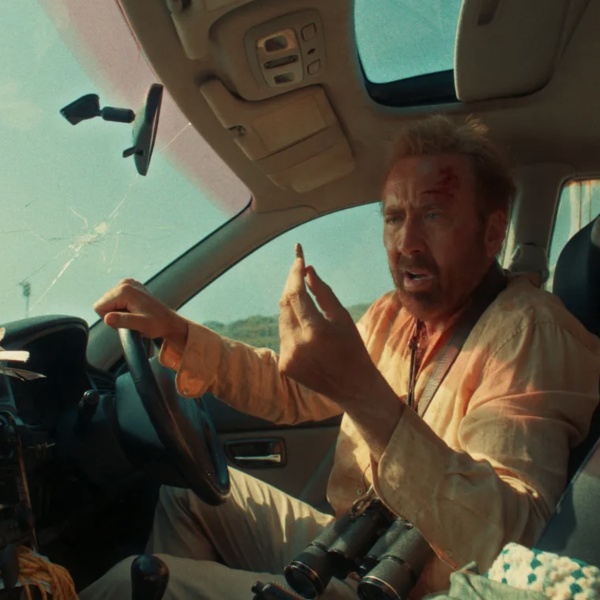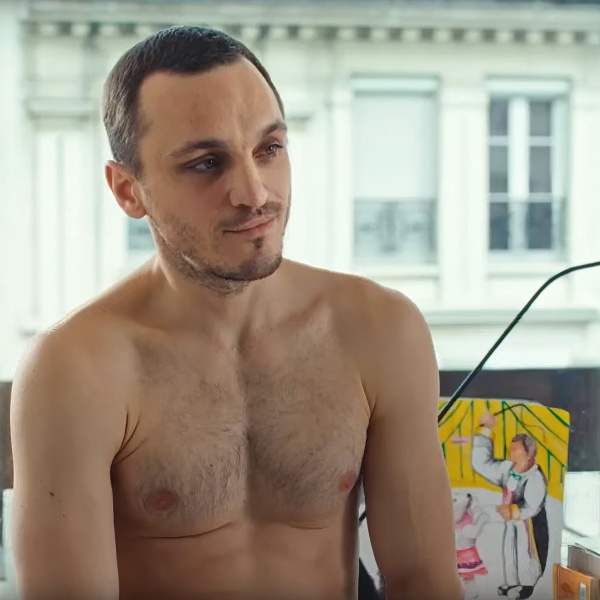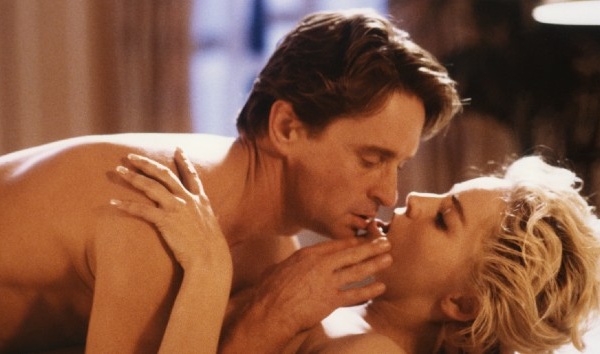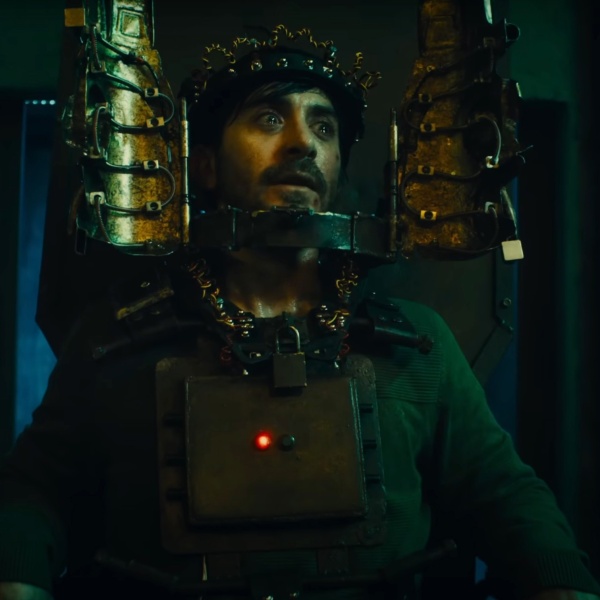To judge by Aki Kaurismäki’s typically wry and winsome “Fallen Leaves,” the Finnish auteur’s first movie since threatening to retire after “The Other Side of Hope” came out 2017, only two things have any significant importance have happened in the world over the last six years.
The first and most pressing of those is the war in Ukraine, which bleeds into Ansa’s (Alma Pöysti) already depressing kitchen every time the supermarket cashier dares to turn on her radio after work. Listening to news of the latest atrocity in Kyiv is the only thing worse than eating her microwaved dinner in the complete silence Ansa settles for when she can’t find anything more comforting on the airwaves. She doesn’t need any further evidence of the darkness outside her window, thank you very much.
The other major historical milestone since 2017 was obviously the release of Jim Jarmusch’s “The Dead Don’t Die,” which Ansa and the hangdog alcoholic she picked up at the local bus station (Jussi Vatanen as the deader than deadpan Holappa) see on the first date of the fumbling courtship that will come to define Kaurismäki’s feather-light tragicomedy. “I’ve never laughed so much,” one of them says as they walk out of the reperatory theater. Odds are that Kaurismäki means all of this as a loving nod to his most simpatico of all American filmmakers, but “Fallen Leaves” viewers who’ve seen Jarmusch’s misbegotten zom-com for themselves will probably have a very different takeaway: Ansa and Holappa’s lives must be really fucking grim.
They are (to a degree), but as tends to be the case in Kaurismäki’s films, their lives are also never quite as bleak as they seem. There are exceptions to that rule across the director’s body of work, and the fact that “Fallen Leaves” is amusingly billed as the “lost” fourth film in his Proletarian Trilogy — which ended on an uncharacteristically bleak note with 1990’s “The Match-Factory Girl” — would seem cause for concern that things between Ansa and Holappa might not work out so well.
Indeed, she gets fired from the supermarket for stealing expired food, and he struggles to stay sober long enough to get through an entire shift at the construction site where he works with his friend, Houtari (Kaurismäki veteran Janne Hyytiäinen, wonderful here as a wannabe lothario who possesses a divine confidence in his karaoke skills). But hope, much like “Fallen Leaves” itself, is only ever believed to be lost, and happiness is never far at hand. While Ansa may not be able to stomach the news from Ukraine that she hears on the radio, the perspective that such awfulness shines on her own misfortunes proves invaluable. An 81-minute film that’s as crisp and bittersweet as a late autumn breeze, Kaurismäki’s latest might amount to little more than a bauble in the end, but it offers a stirring reminder — both with its story, and through the experience of watching it — that life can only be so bleak so long as you can still go to the movies and escape it for a little while.
The joys on display here are slight but plentiful, and on nearly constant display. As is always the case with Kaurismäki’s films, they start with the cinematography of Timo Salminen, whose chiaroscuro lighting and dusky blue shadows tease rare poetry from even the dimmest of lives. It’s hard to imagine anything sadder than the dingy karaoke bar in which a middle-aged man belts out Schubert’s “Serenade” — with live-accompaniment! — for an audience of day laborers on their sixth beers of the night, but Salminen’s camera renders the half-empty room into a romantic commentary on the human condition. The loneliness in the air becomes almost as thick and visible as the cigarette smoke (no small feat in what might be the smokiest movie this side of “Backdraft”), articulately spelling out Ansa and Holappa’s mutual state of mind long before they even say a word to each other.
This being a Kaurismäki film, those words will be few and far between. “Tough guys don’t sing,” Holappa tells his friend, his face betraying all the emotion of a ventriloquist. They don’t seem to talk a lot either. But it doesn’t matter, he and Ansa are bound together by the unspoken belief that their lives are unworthy of love, and by the time we see that Ansa has to buy a second plate just so that she can invite Holappa over for dinner, it’s clear that these two fortysomethings had given up on happiness before they found a kindred spirit.
There’s a joy in watching Holappa’s stoic face start to loosen around the edges, just as there’s a joy in watching him screw things up a few times over. Shot with Bressonian simplicity, the scene in which he loses Ansa’s number — by literally dropping the piece of paper on which she wrote it — might seem too absurd in a different kind of film, but this one finds a knowing comfort in its basic narrative beats. Holappa just waits outside of the movie theater every night until Ansa shows up again, searching for scraps of the happiness she enjoyed there on their first date.
Such Chaplin-esque logic makes perfect sense inside the snow globe universe of a Kaurismäki film, where time stands still even as it leaves the characters behind. The world has gone online, but the local bar relies on a rainbow-colored Wurlitzer that plays a Finnish-language cover of “Mambo Italiano.” Google exists in “Fallen Leaves,” but Ansa can only afford to use the laptop at her local café for 28 minutes. Later, in a very different context, Holappa will give voice to what Ansa must have felt in that moment: “I have the time, but not the money.”
Kaurismäki needs precious little of either. A lucid and brittle ode to the little beauties of life that can be easy to lose sight of without the benefit of seeing them on the big screen, “Fallen Leaves” may be endowed with the spirit of a fable and the romantic sweep of a Sirkian melodrama, but its faith in our ability to find light in the darkness never feels the least bit false or naive, because to watch this movie is to find it there too.
Grade: B+
“Fallen Leaves” premiered in Competition at the 2023 Cannes Film Festival. It is currently seeking U.S. distribution.





